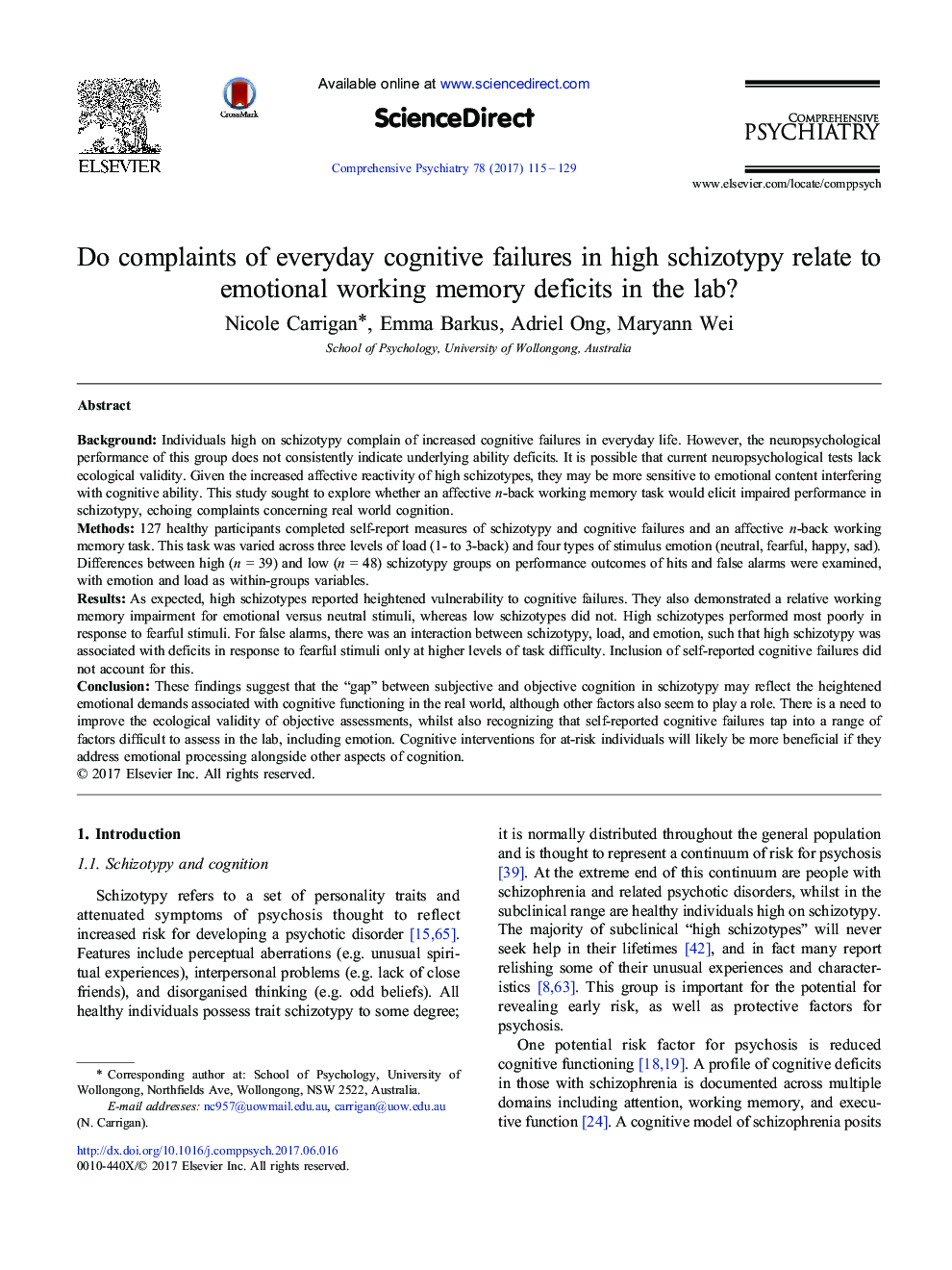| کد مقاله | کد نشریه | سال انتشار | مقاله انگلیسی | نسخه تمام متن |
|---|---|---|---|---|
| 4930098 | 1432637 | 2017 | 15 صفحه PDF | دانلود رایگان |
BackgroundIndividuals high on schizotypy complain of increased cognitive failures in everyday life. However, the neuropsychological performance of this group does not consistently indicate underlying ability deficits. It is possible that current neuropsychological tests lack ecological validity. Given the increased affective reactivity of high schizotypes, they may be more sensitive to emotional content interfering with cognitive ability. This study sought to explore whether an affective n-back working memory task would elicit impaired performance in schizotypy, echoing complaints concerning real world cognition.Methods127 healthy participants completed self-report measures of schizotypy and cognitive failures and an affective n-back working memory task. This task was varied across three levels of load (1- to 3-back) and four types of stimulus emotion (neutral, fearful, happy, sad). Differences between high (n = 39) and low (n = 48) schizotypy groups on performance outcomes of hits and false alarms were examined, with emotion and load as within-groups variables.ResultsAs expected, high schizotypes reported heightened vulnerability to cognitive failures. They also demonstrated a relative working memory impairment for emotional versus neutral stimuli, whereas low schizotypes did not. High schizotypes performed most poorly in response to fearful stimuli. For false alarms, there was an interaction between schizotypy, load, and emotion, such that high schizotypy was associated with deficits in response to fearful stimuli only at higher levels of task difficulty. Inclusion of self-reported cognitive failures did not account for this.ConclusionThese findings suggest that the “gap” between subjective and objective cognition in schizotypy may reflect the heightened emotional demands associated with cognitive functioning in the real world, although other factors also seem to play a role. There is a need to improve the ecological validity of objective assessments, whilst also recognizing that self-reported cognitive failures tap into a range of factors difficult to assess in the lab, including emotion. Cognitive interventions for at-risk individuals will likely be more beneficial if they address emotional processing alongside other aspects of cognition.
Journal: Comprehensive Psychiatry - Volume 78, October 2017, Pages 115-129
